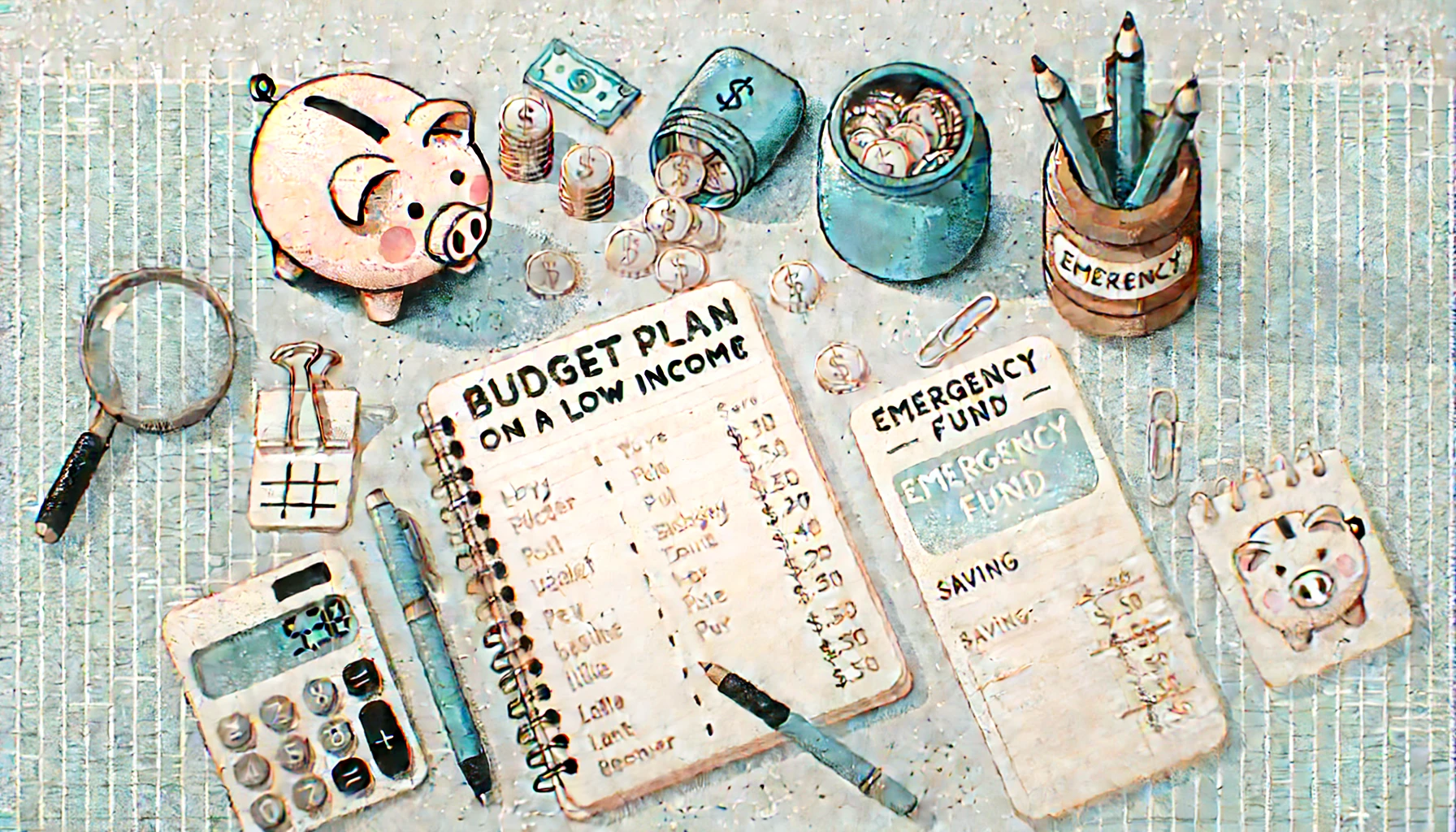Financial planning isn’t just for the wealthy. In fact, it’s even more important when your income is low. Every dollar has a job, and the smarter you are with each one, the more control you gain over your future.
If you think financial planning doesn’t apply to you because you don’t earn much—think again. With the right strategies, you can reduce stress, avoid debt, and even start building wealth, no matter how small your paycheck is.
Here’s a practical, step-by-step guide to help you plan your finances on a low income.
Why Financial Planning Matters—Especially With Low Income
When money is tight, the margin for error is small. A surprise bill or missed payment can throw off your entire month. But having a plan changes everything.
Financial planning helps you:
- Track where your money goes
- Avoid unnecessary spending
- Prepare for emergencies
- Reach short-term and long-term goals
- Reduce dependence on credit or loans
Let’s dive into the tips that can make a big difference.
1. Track Every Dollar You Earn and Spend
The first rule of financial planning? Know your numbers.
List all your income sources:
- Job or side gig
- Government assistance
- Child support
- Freelance work or tips
Now track every single expense for a full month. Use:
- Apps like Mint, EveryDollar, or PocketGuard
- A simple notebook or spreadsheet
- Envelope systems (digital or physical)
Seeing the full picture helps you make better decisions.
2. Prioritize Your Basic Needs
Start your plan by covering essentials first:
- Housing
- Utilities
- Groceries
- Transportation
- Health needs
Only after covering these should you budget for other expenses. This avoids debt and protects your stability.
3. Create a Bare-Bones Budget
A “bare-bones budget” covers only the necessities. It’s a minimal version of your budget—perfect for tight months or when saving aggressively.
It helps you:
- Focus on survival, not lifestyle
- Reduce financial pressure
- Identify spending that can wait
You can always adjust and add more when your income increases.
4. Cut Expenses Without Cutting Joy
It’s not about deprivation—it’s about spending smarter. Look for ways to reduce costs without removing the things you love.
Examples:
- Swap paid streaming services for free content
- Cook at home instead of ordering food
- Use public transport or carpool
- Shop second-hand or at discount stores
- Cancel unused subscriptions
You’d be surprised how many small cuts can free up money.
5. Build a Small Emergency Fund
Even $100 in emergency savings can protect you from falling into debt when the unexpected happens.
Start with tiny goals:
- Save $5 from each paycheck
- Use spare change or cashback apps
- Sell unused items around the house
Once you reach $100, aim for $500. Step by step.
6. Pay Off Debt Strategically
If you have debt, you don’t need to eliminate it overnight. Instead, create a plan to pay it down slowly but consistently.
Choose between:
- Snowball Method (pay off the smallest debt first)
- Avalanche Method (pay off the highest-interest debt first)
Always make minimum payments on all debts to avoid penalties, and put extra money toward one focus debt.
7. Use Cash or Debit Only
Avoid relying on credit when your budget is tight. Stick to cash or debit so you can:
- Stay within your limits
- Feel more control
- Prevent accidental overspending
Some people use the envelope method, putting cash in labeled envelopes for categories like “groceries” or “transport.”
8. Increase Income Where Possible
Even small increases in income can transform your budget. Explore options like:
- Part-time side gigs (freelancing, delivery, remote work)
- Selling handmade crafts or digital products
- Offering local services (cleaning, childcare, dog walking)
- Applying for government benefits you may qualify for
Use this extra money to build savings or pay off debt faster.
9. Plan for the Month—Not Just the Week
Think ahead. If you’re paid weekly or bi-weekly, it’s easy to focus on just getting through a few days. But monthly planning helps avoid surprises.
Map out upcoming:
- Bills and due dates
- Recurring expenses
- Seasonal costs (like school supplies, holidays, etc.)
Planning ahead prevents last-minute panic.
10. Set One Financial Goal at a Time
It’s easy to feel overwhelmed trying to do everything—save, pay off debt, earn more, invest… But focus is key.
Start with just one goal:
- Save $100
- Pay off one credit card
- Make it through the month without borrowing
Once you achieve one, move to the next. Celebrate small wins.
Final Thought: You Deserve Financial Stability
Low income doesn’t mean low potential. With the right tools and mindset, you can take control of your money, create breathing room, and build a better future—one dollar at a time.
Financial planning isn’t about perfection—it’s about progress. Start where you are, use what you have, and keep moving forward.
